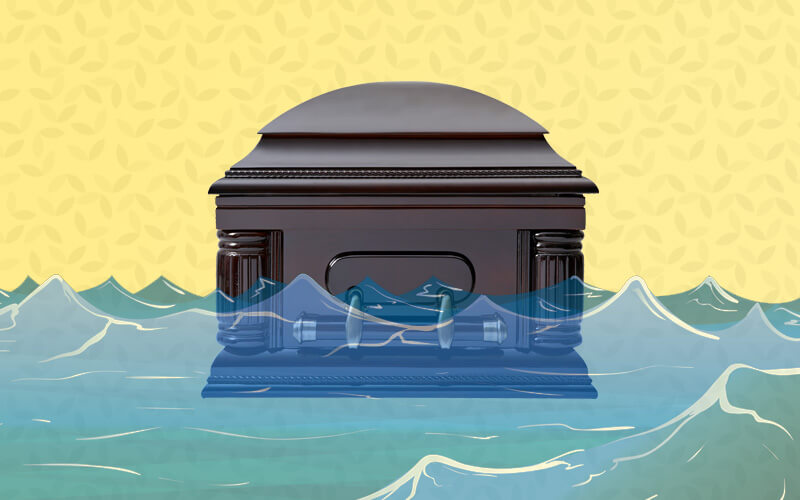Modern funeral practices have changed how and how fast bodies decompose.
While the process kicks off immediately, it can take ten years – or even longer – for embalmed bodies buried in caskets and enclosed by grave liners or burial vaults to decay down to the bone.
Despite that, everyone who’s buried is headed for that final destination. Sealed casket, unsealed casket, or otherwise.
Funeral decisions can delay or speed up decomposition, and some people have preferences in either direction.
One question that often comes up is whether caskets are waterproof and how much of a difference seals make.
In This Article
Are Caskets Waterproof?
Caskets are not waterproof or airtight. While sealed caskets may delay moisture and bacteria from entering the container initially, the gasket will break down over time. Furthermore, even if caskets were waterproof, this would not prevent the deceased body from decomposing.
This applies no matter the material:
Stainless or standard steel, hardwood or softwood, fiberboard or wood veneer.
None of these casket options are waterproof in the sense that they will all, eventually, decompose and allow water from the external environment in.
How Long Does Moisture Take to Decompose Metal Caskets?
Metal caskets have the longest lifespan.
Interestingly, many come with a 50-year warranty (which nobody will cash in on, of course).
Despite this, most steel caskets will begin to corrode and rust from moisture after around 20 years.
Once the metal (or, more likely, the gasket) starts to weaken, water and ground will be able to enter the casket.
How Long Do Wood Caskets Take to Decompose?
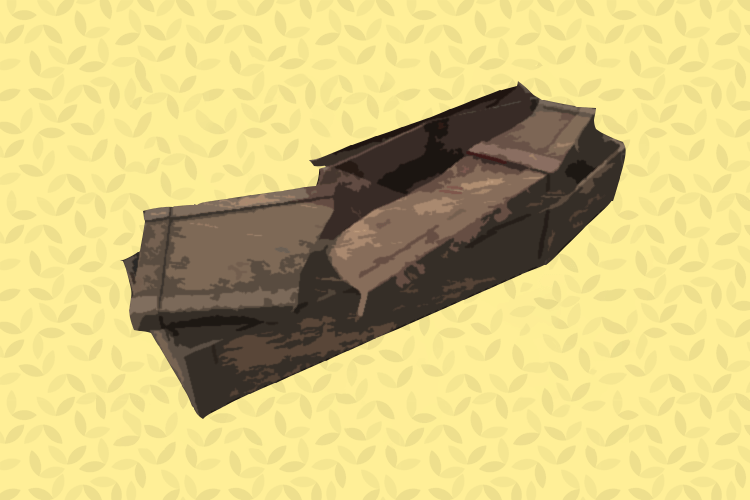
This means wood caskets are not waterproof, at all. A wooden coffin will let water in instantly. But this doesn’t mean it decomposes instantly:
As a natural material designed to go through a life cycle – like people do – wood decays much faster than metal. According to the US Forest Service, “site temperature and moisture” are among the key factors determining how quickly wood decays.
However, the US Forest Service acknowledges that they don’t understand precisely what else goes into the process.
Wood caskets aren’t the same as natural wood that came from dead trees, though. Caskets may be pressure treated and are also often painted or varnished. Along with the type of wood, this also plays a role in a wood casket’s decay rate.
Despite that, wood caskets usually experience significant decomposition and rotting within 10 years. That’s especially true if the soil around a casket is continuously moist.
Are Sealed Caskets Waterproof?
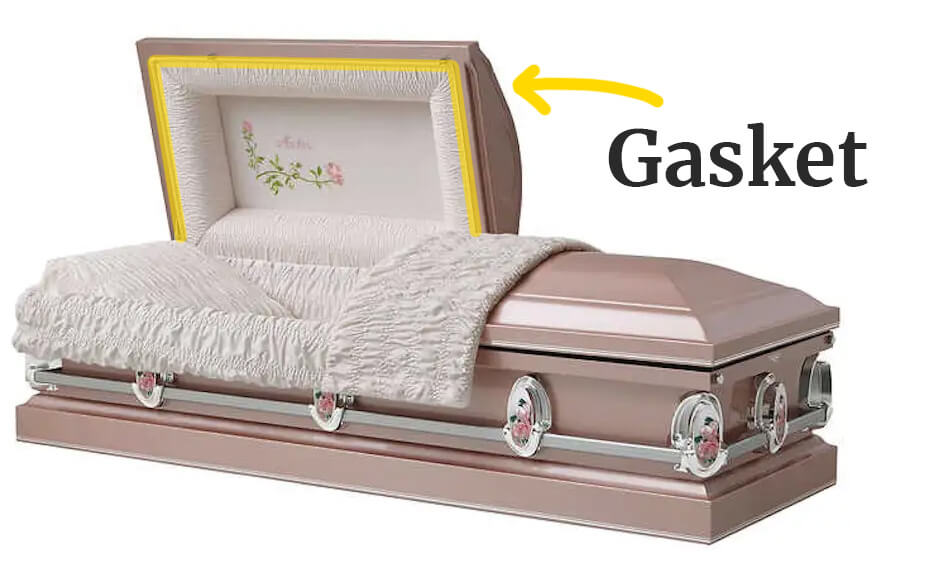
Sealed caskets – also marketed as gasketed and protective caskets – are equipped with a rubber seal and almost always made of metal.
A gasket creates a temporary airtight and watertight seal between the lid and the rest of the casket. But this doesn’t last forever.
These caskets have become quite popular in the modern funeral industry. Arguably because people are willing to pay hundreds of dollars more for them.
Read about them, and you’ll immediately be hit with subtle hints that imply a gasketed casket lasts longer and creates conditions that preserve a corpse longer.
That’s not true:
What Do Sealed Caskets Do?
Well-constructed metal caskets equipped with a gasket may keep the elements at work in the environment — think water, air, and fungi — at bay for a little while longer than non-gasketed caskets.
In that sense, claims that sealed caskets are waterproof and airtight hold up — at least for a little while. But not forever. A gasket is a cheap piece of rubber at the end of the day. They cost pennies on the dollar. They are not designed to last forever.
But even if they did last forever, factors outside of the casket aren’t the main cause of human decomposition.
Human bodies start decomposing the minute we’re dead. While practices like refrigeration and embalming can delay and influence that process, we all decompose, whether in an airtight casket or not.
Funeral Directors Aren’t Allowed to Imply That Sealed Caskets Slow Decomposition
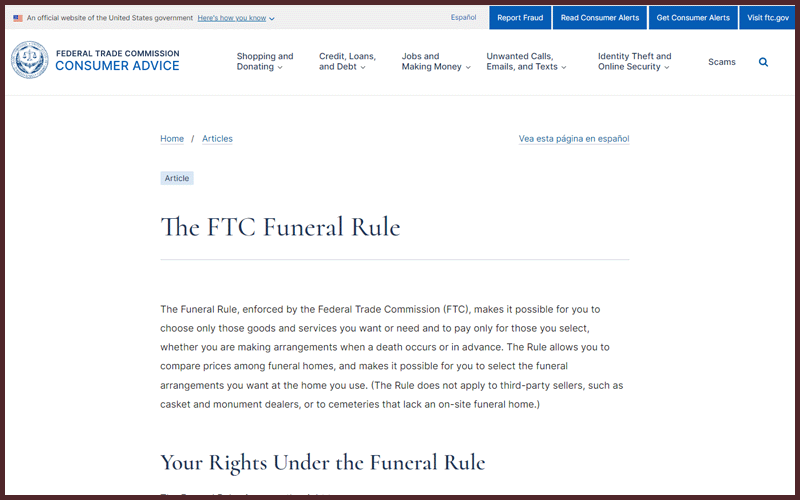
If you’re shopping for a casket for a loved one, you’ll likely want to send them off in comfort and style. The uninitiated will probably immediately assume that gaskets serve a very specific purpose. Once you hear that gaskets are meant to create an airtight and waterproof seal, you may assume this means the body will decompose at a slower rate.
Should a funeral director or casket manufacturer actually make that claim, they are probably breaking the law. The Federal Trade Commission’s Funeral Rule states:
“You cannot make any representations to consumers that funeral goods or services will delay the natural decomposition of human remains for a long term or an indefinite time.”
This rule pertains to gaskets as well as embalming techniques. That makes sense because nothing on the consumer market will delay decomposition indefinitely — and Egyptian-style mummification isn’t something you’ll find on offer in a funeral home near you.
What’s the Purpose of Sealed Caskets if They Don’t Stop Decomposition?
It’s true that people often buy sealed caskets because they offer the illusion that the seal will protect the deceased person who’s about to be buried from the elements. Indeed, online casket stores and funeral homes may hope you’ll come to this conclusion.
That’s not what sealed caskets are for, though.
Sealed caskets serve one main practical purpose, the purpose for which they were initially invented, which is making a casket more suitable for long-distance transportation.
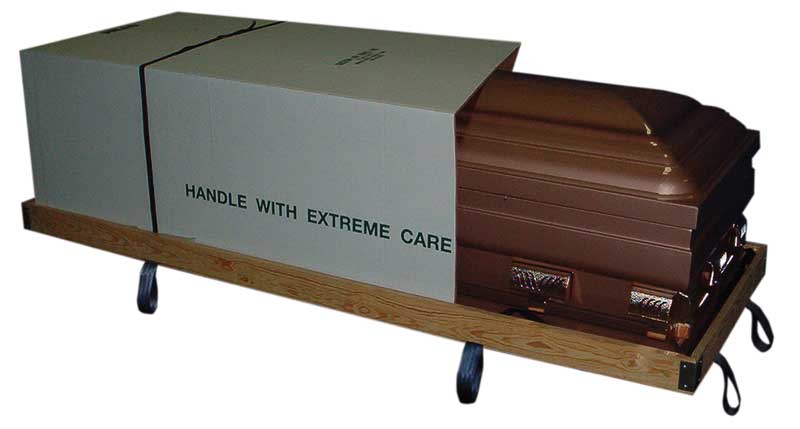
Someone who dies overseas or a long way from home will usually be buried in their hometown, where they may own a burial plot.
In these cases, airlines almost always require a sealed casket to protect staff who handle the casket from contamination (and passengers from a corpse’s unfortunate scent).
Should You Buy a Sealed Casket?
Sealed caskets won’t slow the decomposition process down and definitely won’t stop it.
Nothing can do that because we’re all destined to return to the Earth eventually, in one way or another. Sealed gaskets aren’t waterproof or airtight in the long term, as the rubber degrades over time.
You’ll need a sealed casket if you plan to transport a body on an airplane. Otherwise, it’s typically completely up to you.
The gaskets sealed caskets are equipped with only cost around $12 — and sometimes even a little less — by themselves. However, sealed caskets are typically hundreds of dollars more costly than standard caskets.
The choice is yours, but don’t let anyone trick you into thinking your loved one will have a more dignified send-off if you opt for a sealed casket.
If you have any further questions about caskets, funerals, or anything else beyond life, please feel free to get in touch or leave a comment below.

